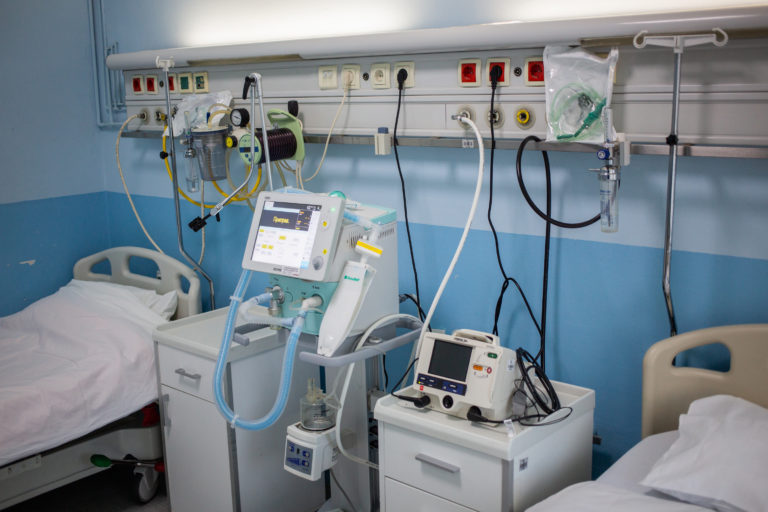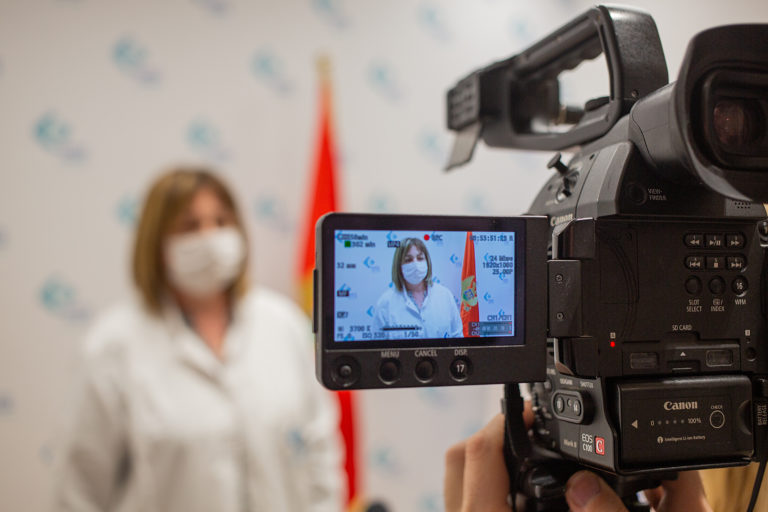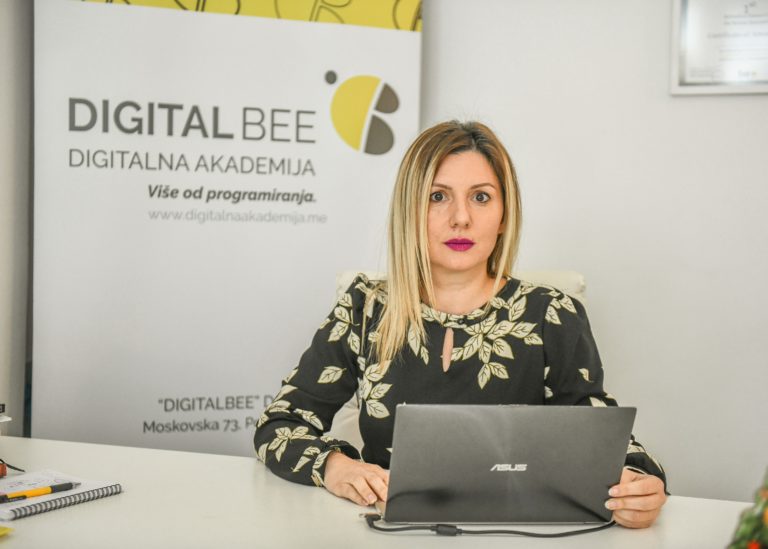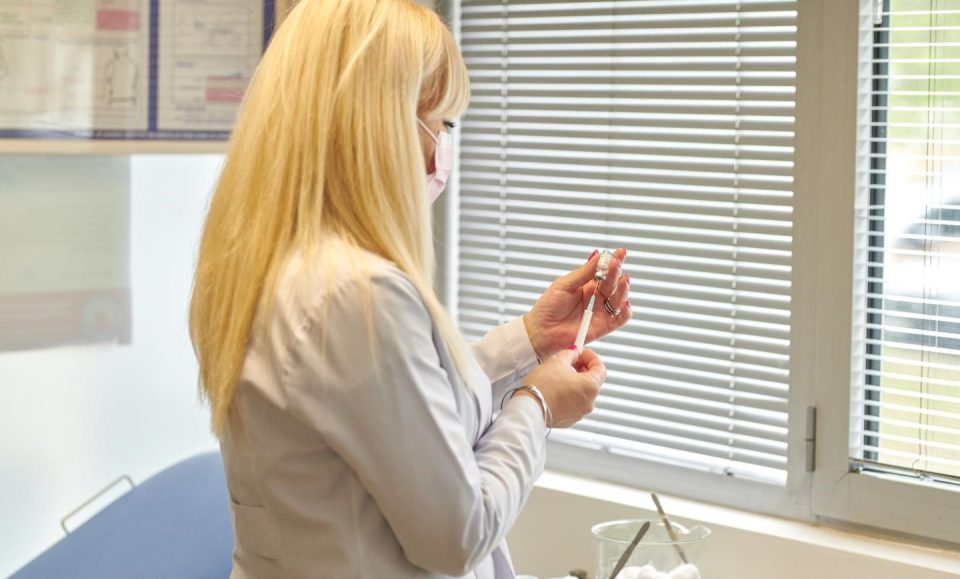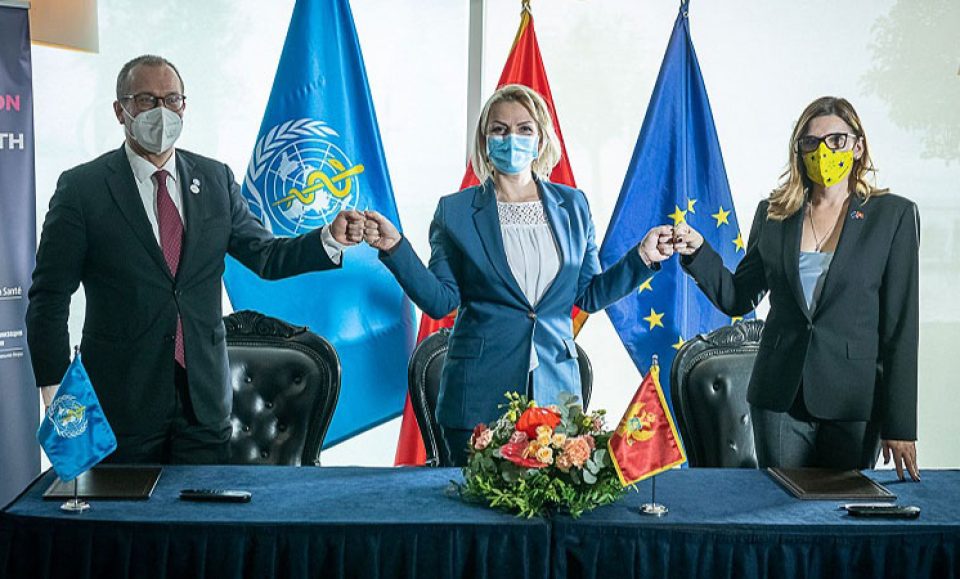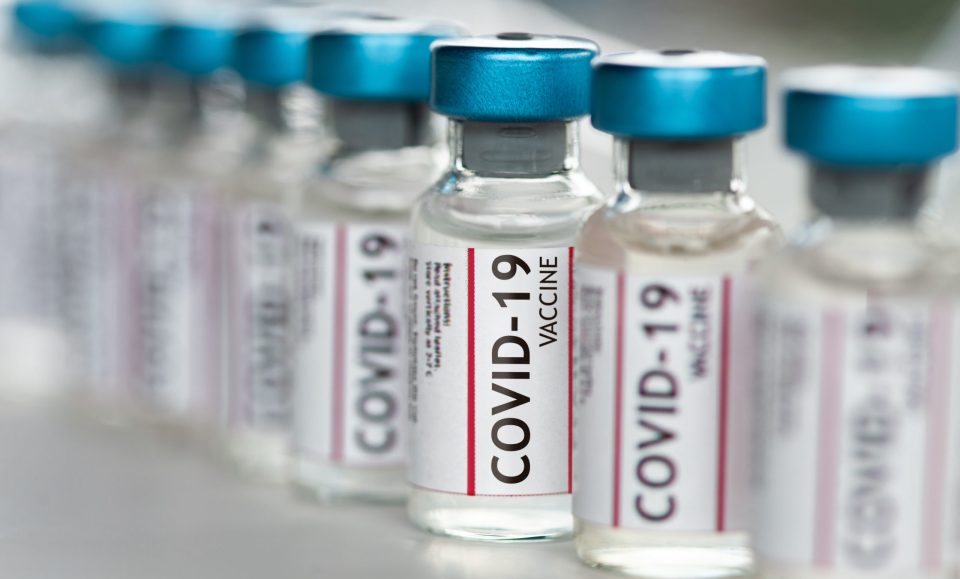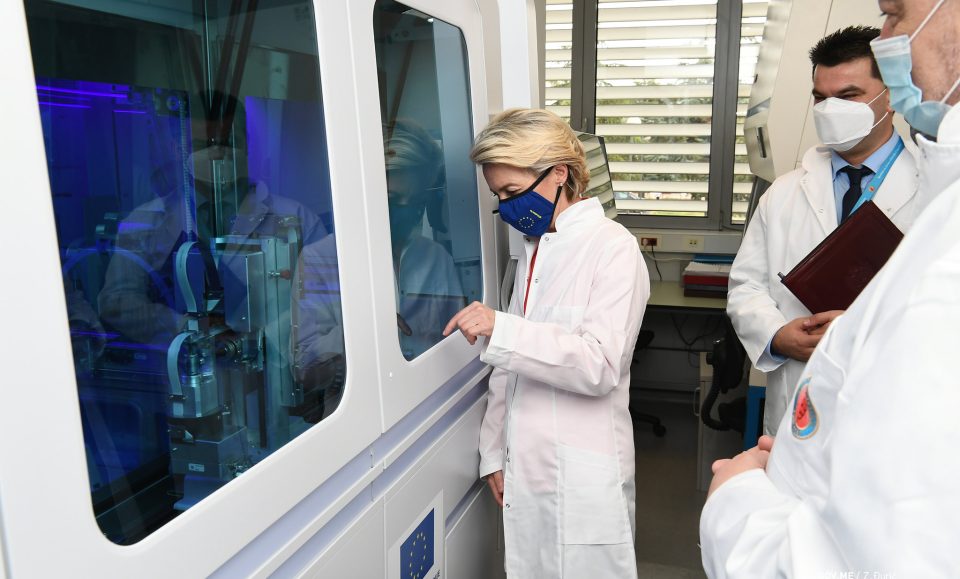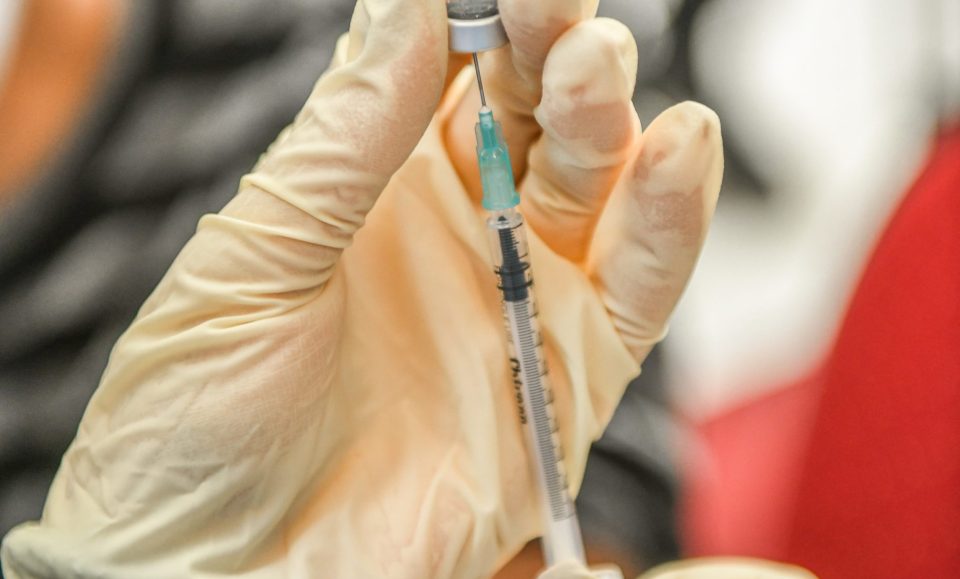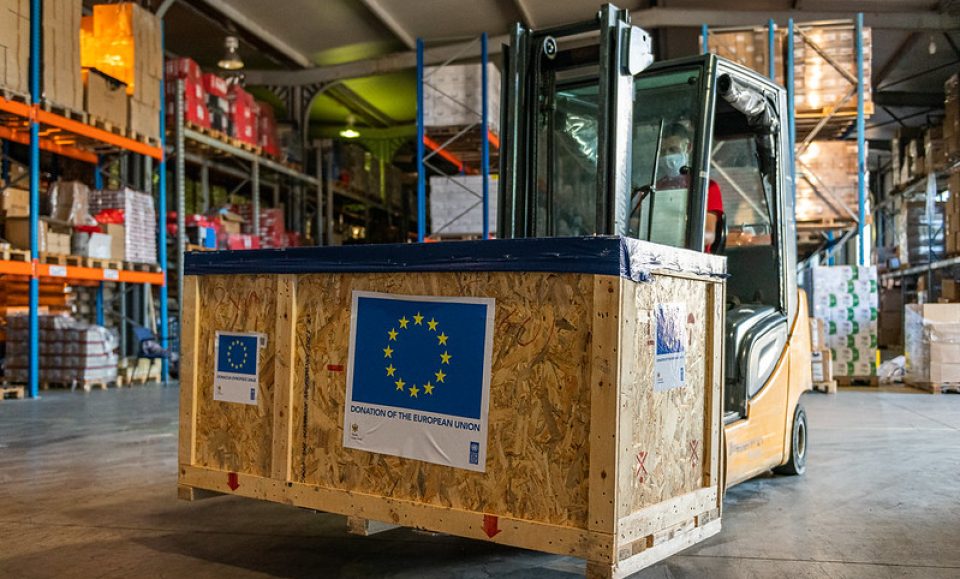There is no doubt that the COVID-19 pandemic has disrupted lives across all countries and communities.
posted on
- February 18, 2022
The EU donated 116 Million Euros for the Fight Against COVID-19
When the first case of the coronavirus in Montenegro was registered in March 2020, the European Union reacted immediately. It promptly signed a contract for urgent procurement of medical equipment, worth 3 million euros. 100 ventilators, 10 mobile digital X-rays and a large amount of medical protective equipment were procured. In the meantime, vaccines, other medical devices and equipment were donated, the economy and vulnerable groups were helped, so that assistance grew to a total of 116 million euros the EU donated to Montenegro to fight the coronavirus.
“The last two years have been difficult for all of us and I know how much the economy, companies and citizens have been affected by the COVID-19 pandemic. The European Union has stood by you from the beginning, and we will continue to do so,” said the European Union Ambassador to Montenegro, Ms Oana Kristina Popa.
Most of the equipment that arrived in the first months of 2020 was donated to the Clinical Centre of Montenegro (KCCG). KCCG’s Director Ljiljana Radulović told the EU Info Centre that the institution had received donations worth over 4 million euros in the past two years, intended to fight the pandemic.
“I will remind you that during 2020, the Clinical Centre was closed for six months for everyone who was not a COVID or an urgent patient. But during 2021 it remained fully open, non-stop. In that regard, we owe our gratitude, among others, to the Delegation of the European Union to Montenegro, which helped us with donations to build the stable foundations, thanks to which we successfully weathered the crisis,“ says Radulović.
The long-awaited Pfizer vaccine arrived in Montenegro in early May last year. The EU has donated a total of 42,000 doses to Montenegro. At the end of 2021, France provided the largest donation yet – additional 117,000 doses of the Pfizer vaccine. Poland also contributed with 100,000 doses of Pfizer/BioNTech vaccine. Slovenia donated 42,000 doses of Moderna vaccine, and Slovakia and Croatia donated 10,000 doses of AstraZeneca each.
Pfizer is still the most sought-after vaccine among Montenegrin citizens. We were able to verify that when we visited the vaccination centre in the Delta City shopping mall in Podgorica, where over 100 people are being vaccinated daily.
“We mostly get the citizens who come to get their third shot, but there are also those who come for their second or even first shot. On this occasion, I would like to thank the EU for this donation, because it helps us fight the pandemic together,” said Ms Jelena Lutovac, MD.
We mostly get the citizens who come to get their third shot, but there are also those who come for their second or even first shot. On this occasion, I would like to thank the EU for this donation, because it helps us fight the pandemic together
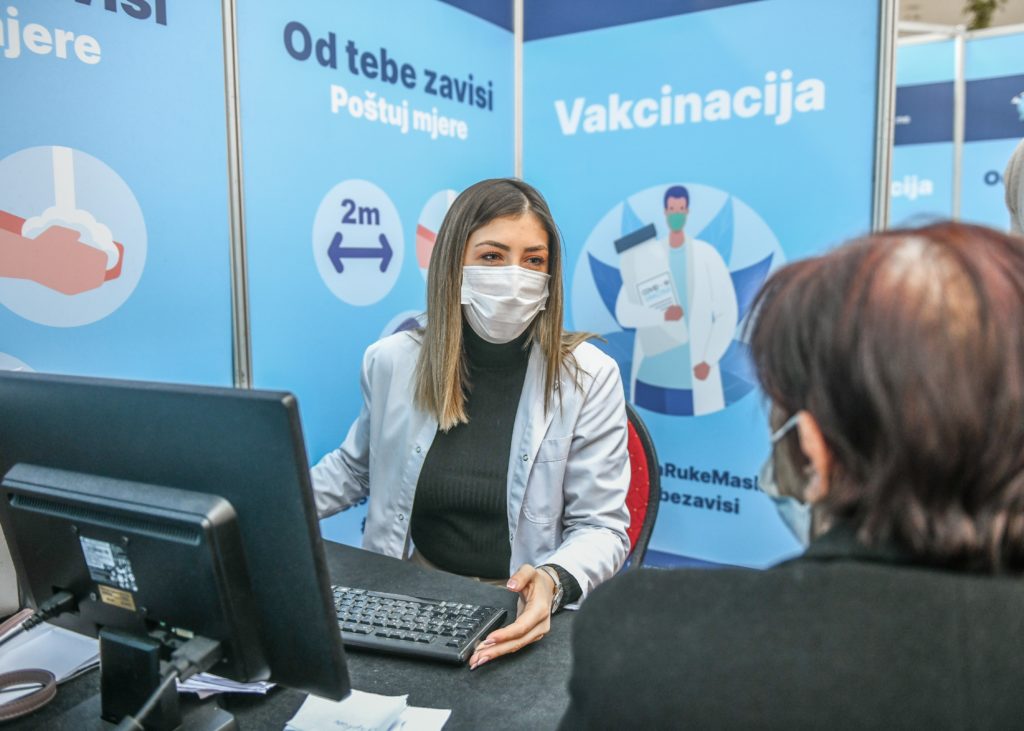
In addition to mass vaccination, effective and mass testing is important for a successful fight against the pandemic. For these purposes, the EU donated to the Institute of Public Health a state-of-the-art PCR device, which fully automates and integrates the complete testing process, from the primary sampling to the delivery of results, the first of its kind in Montenegro.
“This donation is very important, because our testing capacities have increased by 50%, our work process has been facilitated in terms of faster sample processing and faster delivery of results,” said Danijela Vujošević from the Institute of Public Health in the interview for the EU Info Centre.
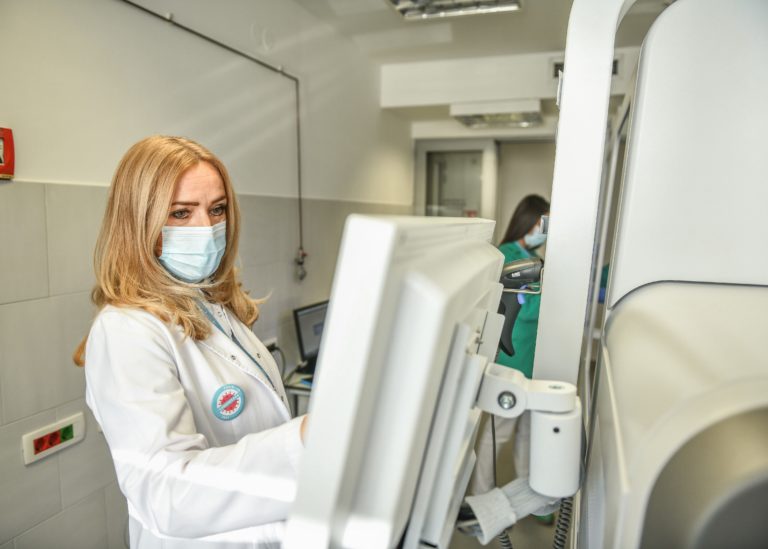
This donation is very important, because our testing capacities have increased by 50%, our work process has been facilitated in terms of faster sample processing and faster delivery of results
The economy has not remained immune to the virus either. To remedy the negative consequences of the pandemic, the EU directly helped Montenegro’s budget with 40.5m euros in grants. Thus, it ensured the continuation of the payment of 150,000 monthly salaries and financial assistance for 300 small and medium enterprises, among which one third are owned by women.
One of these women is Jasna Pejović, owner of the company DigitalBee, which deals with children’s education and consultations in the field of ICT. Thanks to the support of the EU, during the COVID pandemic she managed to produce a prototype of a unique application for the development of emotional intelligence – Flourish.
“At that time, we received a grant of 5,000 euros. Although it is not a huge amount of money, it was a turning point for us then – we were looking into whether we’ll be able to actually do something or not”, explains Jasna, adding that the application is now in beta and that we should expect its placement on the global market.
In addition to grants, the EU has provided Montenegro with favourable loans for the economy worth 160m euros.
“New funds are available for 2022, with a strong focus on strengthening the Montenegrin economy and helping the private sector improve its competitiveness,” said Ambassador Popa.
PROJECT
Maintaining citizen trust in the capacity of the public health system to safely control infection risk in various settings is key to ensuring appropriate care-seeking behaviour and adherence to public health advice.
The COVID-19 pandemic has exerted a great stress on the healthcare systems worldwide. The best results in the fight against coronavirus have been achieved by those systems that scaled up surveillance, testing and contact tracing.
The COVID-19 pandemic has severely impacted the economy and deepened social vulnerabilities around the world, including in Montenegro.
The COVID-19 pandemic has caused global challenges and economic crises that are yet to unfold.
The COVID-19 pandemic represents an unprecedented burden on the health and social protection systems, as well as a severe setback for the economy.
The spread of COVID-19 has been staggering, causing wide social and economic disruptions globally.

